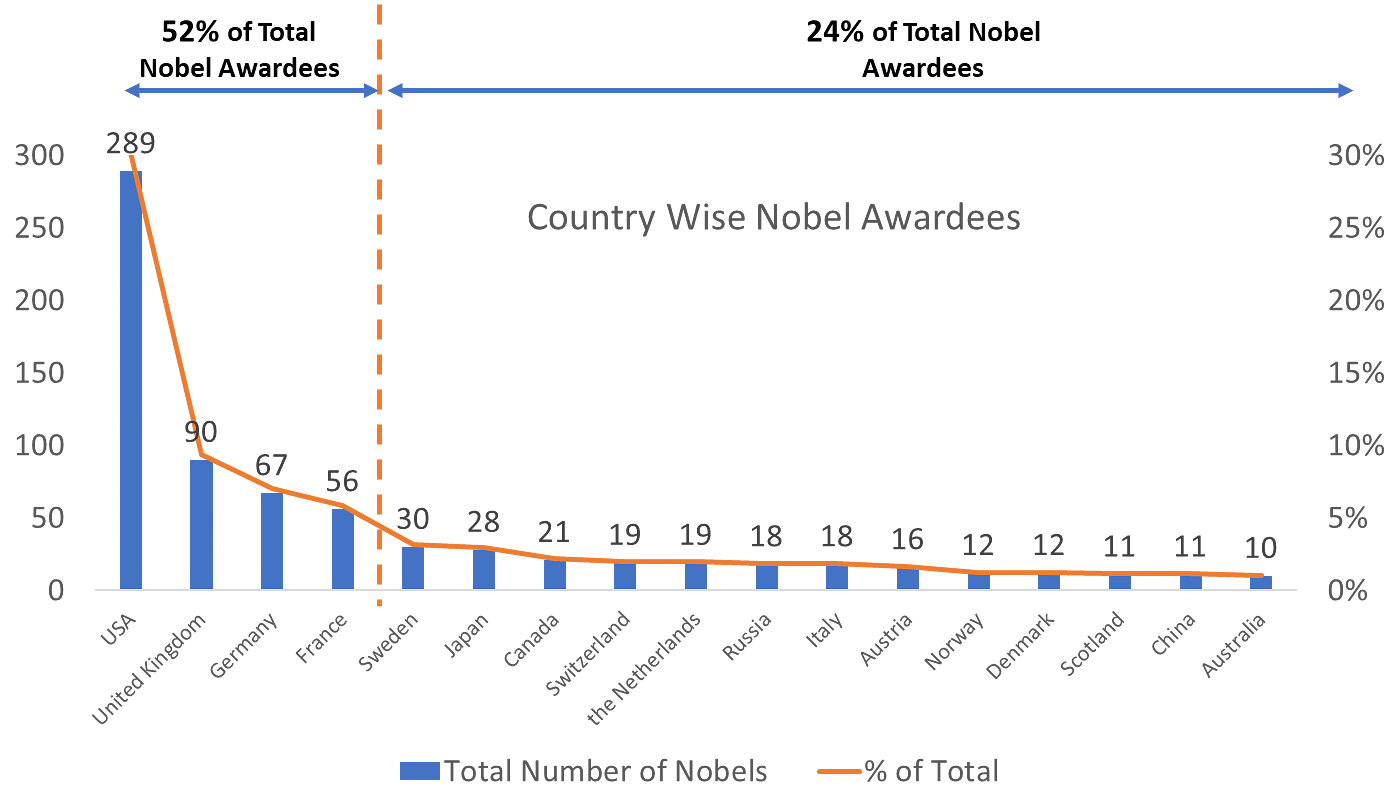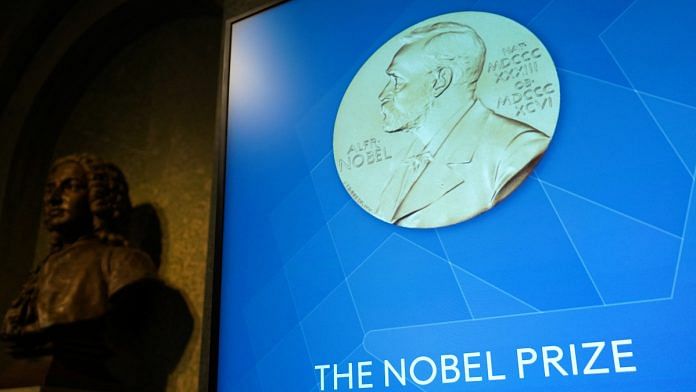Thank you dear subscribers, we are overwhelmed with your response.
Your Turn is a unique section from ThePrint featuring points of view from its subscribers. If you are a subscriber, have a point of view, please send it to us. If not, do subscribe here: https://theprint.in/subscribe/
This is Nobel Prize week. Every day a new Nobel prize is announced, and the laureates and their work are discussed and celebrated across the world. When I am writing this, Nobel prizes in Physiology/Medicine and Physics have been announced and Chemistry is to be announced today. Few more in Literature, Peace, and Economic Sciences will be announced soon by 9th October. These prizes, instituted in the year 1901 by Nobel Foundation, have over the years become the highest individual or organisational awards in their respective fields.
However, while watching a recent video by Sandhya Ramesh of The Print on this year’s Nobel Prize awarded in Physiology/medicine, she mentioned that Nobel Prizes have been unfair and non-inclusive in terms of gender representation. This piqued my curiosity to investigate this further and look at inclusivity aspect of Nobel prizes in terms of their representation of gender and countries.
Gender Representation
Till the year 2022, 989 Nobel prizes have been awarded. Of these, there have been 959 Individual laureates while 30 organizations have been awarded in Nobel Peace Prize. Of the 959 individual Nobel laureates, only 61 have been female awardees. Thus, over its history of last 121 years, only 6% of the individual awardees have been female while 94% have been men.

Looking at field wise Gender representation, we find that number of female awardees across the six fields is abysmal. It is worst in Economic Sciences where only two females have been awarded in the last 53 years. The first female to receive Economics Nobel was Elinor Ostrom in the year 2009, 40 years after the prize was instituted. Similarly, the first woman to receive the Nobel Prize in Physiology or Medicine was Gerty Cori in 1947, 46 years after the first Nobel prize in Medicine was awarded. Even in non-sciences field like Literature and Peace, the number of female laureates is shocking. There needs to be greater investigation into the why of it? While women are excelling in every other field, this under representation of Women in Nobel Awardees in Baffling.

Has Female Representation improved in the recent past?
Till now we looked at gender representation at an aggregate level and within respective fields and we found out that across the six categories the female representation has been very poor. However, it’s worth exploring whether there has been an improved trend in Gender representation of Nobel Prize awardees in recent past. For the same, we looked at number of Nobel laureates over 20-year spans starting from 1901. What we find that steadily there are more female Nobel laureates. In the last 20 years alone, number of female laureates has increased considerably. Close to 50% of all female Nobel awardees have been awarded in the last 20 years only. Thus, it can be said that a greater number of females are finally being recognized by the Nobel committee and maybe committee has made some efforts in this direction.

Country Wise representation
While earlier we looked at the Gender wise Nobel Awardees and found that female awardees are very few, let us now look at whether a select group of countries win it more often than others. Here again we find that the representation of countries is very skewed. People born in only four countries i.e., USA, United Kingdom, Germany, and France have more than half of the awards. There are only 20 countries with more than 10 number of awardees across fields. These twenty countries combined, in a world of 200+ countries, have more than three-fourth of the total awardees.

It can be contended that individuals hailing from affluent, advanced nations benefit from substantial resources and extensive support networks for pioneering research, often spanning many years and this leads to a greater number of Nobel laureates emerging from these countries. Nevertheless, the Nobel committee should confront the concern of underrepresentation among Low- and Middle-income countries, scrutinizing it from the perspective of equity and inclusiveness. Analogous to the United Nations, which has diminished in significance due to the predominance of a handful of veto-wielding nations, the Nobel committee should avoid perpetuating an elitist paradigm.
Should Nobel Committee even bother about diversity?
While there is an argument that excellence in any field should not be constrained to inclusivity constraints, we must consider the evolving times. Today, institutions face scrutiny for adherence to new norms of equality and representation. For example, the Oscars, criticized for being too white, have actively sought diversity. Similarly, the Nobel committee should collaborate with academic institutions and governments worldwide to promote inclusion by awarding it more women and from more unrepresented countries. Although excellence remains vital, adapting to contemporary standards is crucial in benefiting all of humanity.
These pieces are being published as they have been received – they have not been edited/fact-checked by ThePrint.

